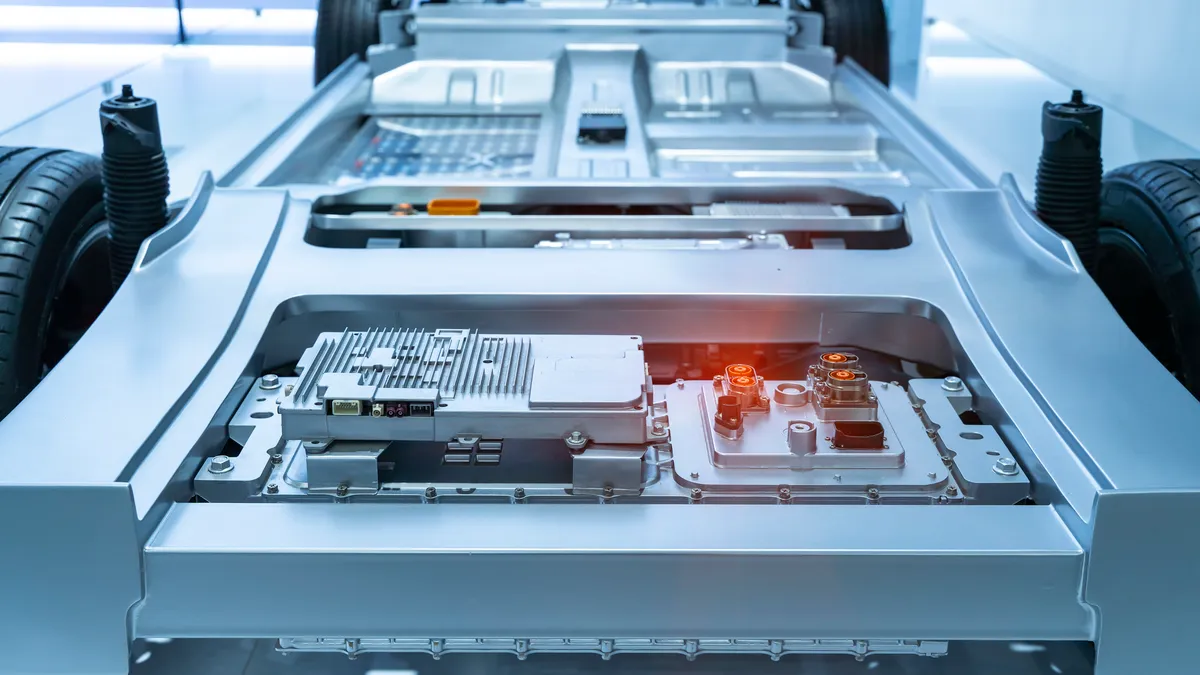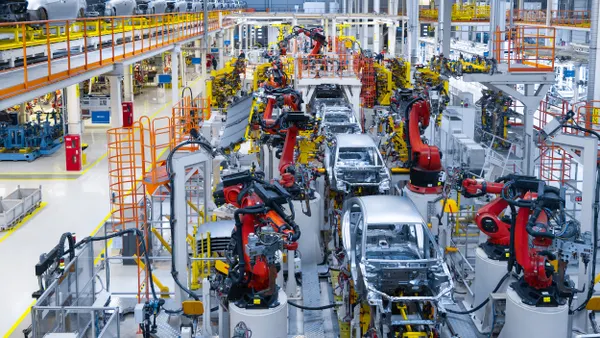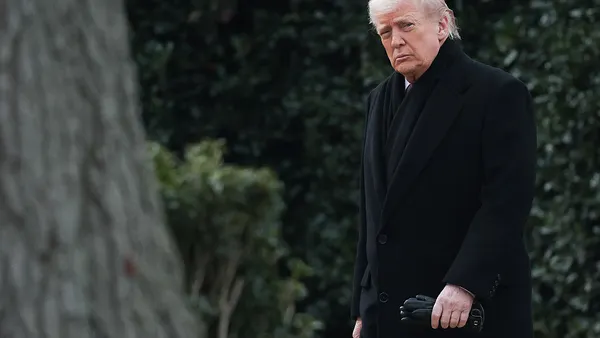Dive Brief:
- The Department of Energy is looking to foster the development of longer-lasting, faster-charging electric vehicle batteries with a new round of project funding.
- The department is providing $42 million for 12 projects to develop EV batteries with enhanced features that can withstand freezing temperatures with overall better range retention, it announced last week.
- Dubbed the "Electric Vehicles for American Low-Carbon Living” program, the selected projects from eight states include private companies, universities and laboratories.
Electric Vehicles for American Low-Carbon Living program awards
Dive Insight:
The program outlines five objectives for the projects to work towards:
- Achieving a charge rate equivalent to 5-15 minutes to restore 80% of cell capacity;
- reducing low-temperature battery performance losses by at least 50%;
- retaining a minimum of 90% capacity after the battery delivers 200,000 miles of equivalent and cumulative range;
- identifying a compelling pathway to a cost of less than $75/kWh at commercial scale; and
- implementing new and existing protocols to verify the safety of new battery chemistries and cell designs.
In particular, the Department of Energy is trying to tackle aspects of EV batteries that have historically served as barriers to widespread adoption, including cost and charging time.
"Advanced batteries capable of safe, rapid charging are necessary to appeal to these Americans who are unable to charge cars at home for long periods of time" the department said in a May press release. "This will decrease the amount of time drivers spend at charging stations to as low as five minutes, while ensuring increased costs savings during each charge."
This is the latest in a slew of funding offered by the Department of Energy towards sustainably focused manufacturing.
Earlier this month, the department announced $52 million for clean manufacturing research and development. And in December, it announced $72 million for workforce training programs aimed at helping small manufacturers reduce their energy use.












